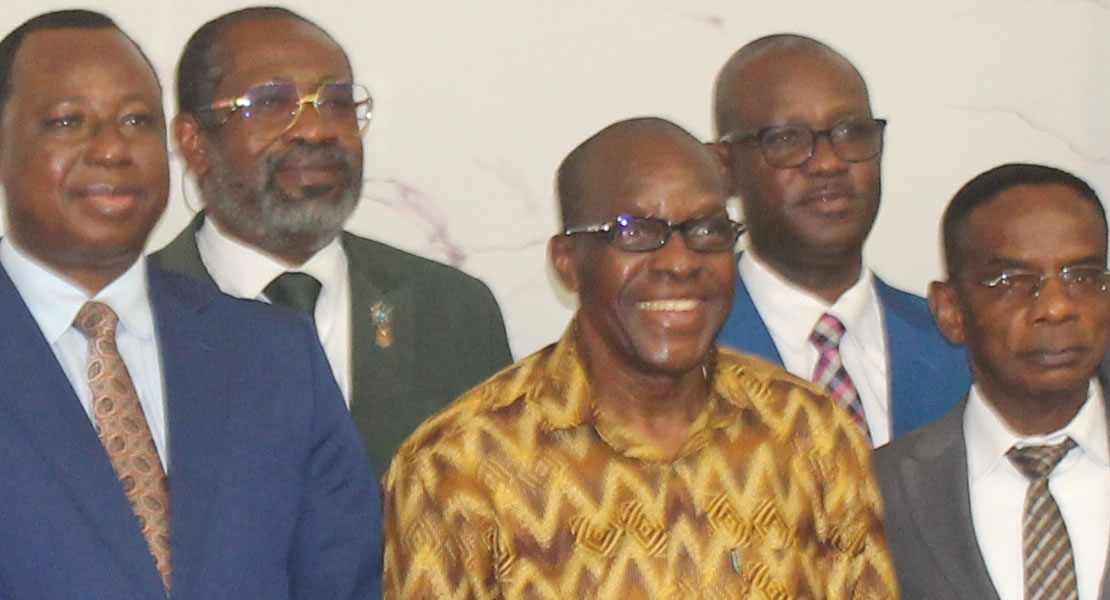
Convener of head of Key Accountability Institutions in Ghana (KAI) Dr. Joseph Whittal has said no single institution can fight corruption and crime in isolation hence the need for synergy for shared intelligence and joint action.
In all eleven institutions made up KAI including Commission on Human Rights and Administrative Justice (CHRAJ), Parliament of Ghana, Office of the Attorney-General and Ministry of Justice, Office of the Special Prosecutor, Economic and Organised Crime Office (EOCO), Ghana Audit Service, Financial Intelligence Centre (FIC), Narcotics Control Commission (NACOC), Internal Audit Agency (IAA), National Investigation Bureau (NIB) and Ghana Police Service, and they deliver critical and interlocking mandates for safeguarding transparency, public accountability, ensuring justice, and combating corruption and crime.
Dr. Joseph Whittal thanked the Rt. Hon Speaker for graciously hosting a day’s meeting and his consistent commitment to the work and vision of the Key Accountability Institutions Forum and for affording them the opportunity firstly to consider the establishment of an Integrity Awards Scheme and Secondly, to validate and adopt the Work plan for implementation.
Parliament, as the representative body of the people and the custodian of our democratic values, provides this Forum with legitimacy, oversight, and convening power that we need.
There is the need for us to pursue further. We must broaden participation in this Memorandum of understanding, and it must not remain the preserve of a few and every institution with a mandate to uphold accountability should be part of this collective agenda, he stated.
He added that the challenges we face are too great, and the stakes too high for fragmentation or duplication of efforts.
“I therefore wish to encourage all existing members who have not yet signed the MoU to do so.
Just a few days ago, at the Commonwealth Carribean Association of Anti-Corruption Agencies and Integrity Commissions, I spoke on the importance of synergy between national, regional and international anti-corruption agencies. The lessons apply directly to this forum. I indicated that synergy enables:
Real-time information sharing and joint operations.
Shared tools and platforms and reduced duplication of effort.
Enhanced detection and investigation of crimes.
Improved public, private sector and Civil Society Coordination.
Strengthened Institutional Integrity and Reputation.
Capacity Building and Technical Assistance; and
Harmonised Regulatory Standards.
The same principles can and should guide our work as KAIs in Ghana”. He affirmed that with effective collaboration, we build a resilient governance architecture capable of responding to the complex and evolving nature of corruption and organised crime.
Again, Ghana is a fast-developing nation with a growing population. Citizens have become increasingly aware of the seriousness of corruption in the country and rightly so, increasingly demanding concrete solutions. They expect results. They expect accountability, and certainly, they expect us to work together.
Meeting these expectations requires that we, collaborate, not compete; share knowledge, not isolate our efforts; and work as a unified system committed to the public good.
The KAI Forum remains one of Ghana’s best innovative frameworks for institutional collaboration. What many of us do not know or appreciate is that at the international level, many countries have shown interest in the KAI concept and are learning from our experience.
“I wish therefore to call on Heads of Institutions to build on the foundation laid in 2020, strengthen the MoU and its protocols, and demonstrate through joint action that accountability is not just a mandate, it is a shared mission and a call for action”.
Kwaku Sakyi-Danso/Ghanamps.com